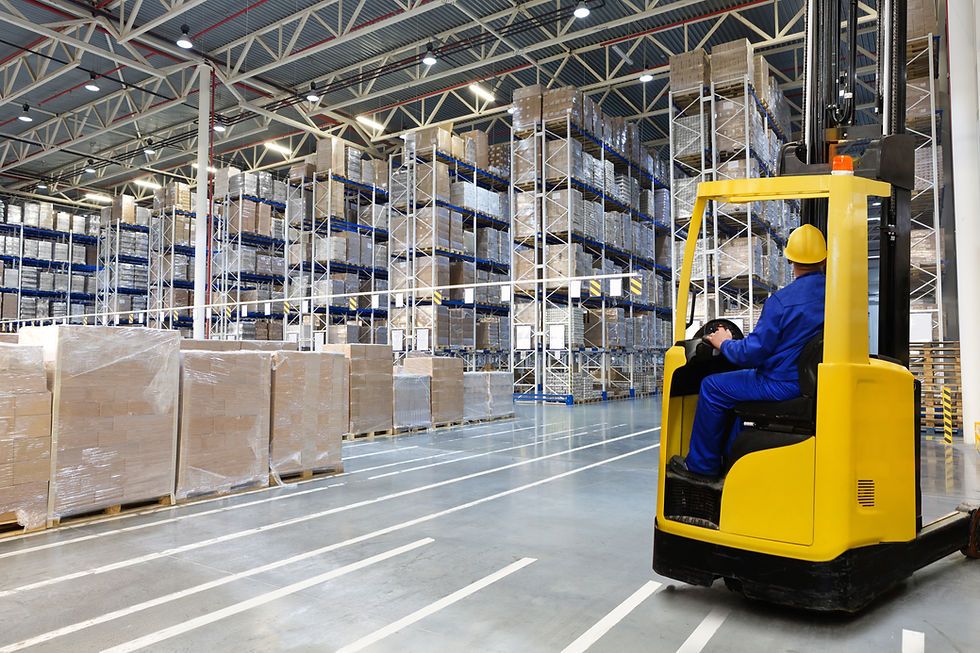What to Look for in a Temperature-Controlled Logistics Provider
- Zero Degrees Logistics

- Sep 9, 2024
- 3 min read
Selecting the right temperature-controlled logistics provider is essential for businesses dealing with perishable or sensitive products. Whether transporting pharmaceuticals, fresh produce, or frozen goods, the provider you choose plays a critical role in maintaining product quality, safety, and compliance throughout the supply chain. Here’s what to look for when selecting a temperature-controlled logistics partner.

1. Expertise in Cold Chain Management
The first thing to consider is the provider’s expertise in cold chain management. Transporting temperature-sensitive goods requires specialised knowledge, including handling protocols, temperature monitoring, and the ability to respond to unexpected changes in environmental conditions. A provider with a proven track record in cold chain logistics can offer peace of mind that your products will be handled with care and precision.
Additionally, look for providers who have experience in your specific industry. The requirements for pharmaceutical cold chains, for example, differ from those of frozen food logistics. Make sure the provider understands the unique needs of your products and has the appropriate infrastructure to meet those needs.
2. Comprehensive Temperature Monitoring
One of the most important factors in temperature-controlled logistics is ensuring that goods remain within the required temperature range throughout the entire journey. Your logistics provider should offer comprehensive temperature monitoring systems that track real-time data from origin to destination.
Providers using Internet of Things (IoT) technology can offer real-time alerts if there’s any deviation from the specified temperature range, allowing for swift corrective action. Moreover, the ability to provide detailed reports on temperature data is crucial for meeting regulatory and compliance requirements.
3. Regulatory Compliance and Certifications
Ensuring regulatory compliance is non-negotiable when dealing with temperature-controlled logistics. Different industries have strict regulations regarding the transportation of temperature-sensitive goods. Look for a provider that complies with relevant standards such as the Good Distribution Practice (GDP) for pharmaceuticals or the Hazard Analysis Critical Control Point (HACCP) for food logistics.
In addition, certifications like ISO 9001 or ISO 22000 demonstrate that the provider adheres to internationally recognised quality management standards. Ensuring that the provider stays updated on evolving regulations will help you avoid potential legal issues and ensure the safe delivery of your products.
4. Reliability and Contingency Planning
Reliability is a key factor in selecting a temperature-controlled logistics provider. Delays, equipment failure, or human error can lead to significant losses, especially when dealing with perishable goods. Make sure the provider has a robust contingency plan in place to deal with potential issues such as vehicle breakdowns, power outages, or route disruptions.
Furthermore, inquire about the provider’s track record in on-time delivery. A high on-time delivery rate indicates reliability and efficient handling of time-sensitive shipments. Ask about the steps they take to maintain consistent service, including backup systems for refrigeration units and alternative transport options.
As the logistics industry faces increasing pressure to reduce its environmental impact, many companies are now prioritising sustainability. Look for a provider that implements sustainable practices, such as using energy-efficient refrigeration units, optimising transport routes to reduce fuel consumption, or offering eco-friendly packaging solutions.
Choosing a logistics provider with a strong focus on sustainability can help reduce your carbon footprint and align your business with environmentally conscious practices, which can be a competitive advantage in today’s market.
Conclusion
Choosing the right temperature-controlled logistics provider requires careful consideration of their expertise, technology, regulatory compliance, reliability, and commitment to sustainability. By ensuring that your logistics partner meets these key criteria, you can safeguard the quality and safety of your products, maintain compliance with regulations, and improve your overall supply chain efficiency. Selecting the right partner is not just a business decision; it’s an investment in the long-term success of your operations.





Completely agree there needs to be a checklist when considering the right logistics partner, especially for temperature controlled logistics. Good article thanks for sharing.